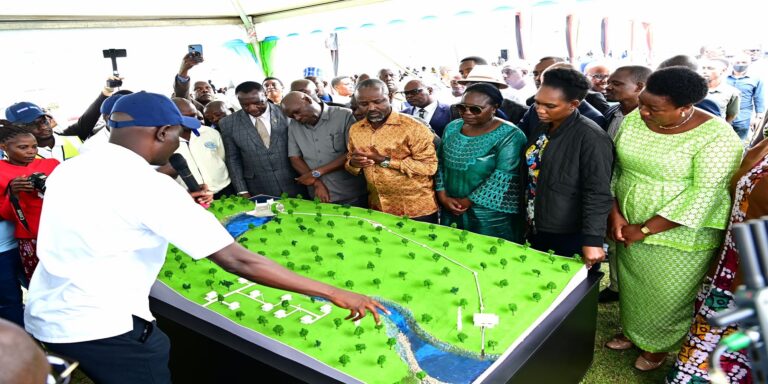Deputy Speaker of Parliament, Thomas Tayebwa, has emphasized the need for reliable and affordable electricity to unlock opportunities for businesses, schools, health facilities, and households across Uganda.
He made these remarks while officiating at the groundbreaking ceremony for the construction of the Ncwera Mini Hydro-Power Project in Ruhinda North County, Mitooma District.
The project is part of the Electricity Access Scale-Up Project implemented by the Uganda Energy Credit Capitalisation Company (UECCC) and funded under the ORIO Infrastructure Fund of the Netherlands.
Tayebwa, who also serves as the area Member of Parliament, underscored the transformative impact of the project, stating that it would not only provide lighting for homes but also stimulate economic growth.
“Farmers will be able to process their produce efficiently, small businesses will thrive, and our children will have better opportunities to study,” Tayebwa said.
He commended the Ministry of Energy and Mineral Development for extending key energy infrastructure to rural communities and urged for continued collaboration to expand similar projects to other areas in need.
Minister of Energy and Mineral Development, Hon. Ruth Nankabirwa, reaffirmed the government’s commitment to providing affordable energy in support of industrialization and socio-economic development.
“I am pleased to note that in the agreement that was signed, the tariff is 5.3 US cents per unit, which is good. We have been working to reduce the cost of electricity, and since hydropower is the cleanest energy source, it remains the cheapest,” Nankabirwa said.
Mitooma District Woman Representative, Hon. Juliet Agasha, called on the Ministry of Energy to address infrastructural challenges affecting electricity distribution in the district.
“We have two sub-counties with electricity poles but no wires, meaning residents do not have access to electricity. Additionally, persistent load shedding in the district has severely impacted many businesses,” Agasha noted.
Deputy Ambassador of the Netherlands to Uganda, H.E. Joost Van Ettro, lauded Uganda for its strong partnership with private investors who support socio-economic and industrial development.
“With the growing demand for energy in rural areas lacking access to the national grid, we believe mini-hydropower plants will service communities and spur economic growth through industrialization, increasing employment and opportunities for the growing population,” Van Ettro said.
UECCC Managing Director, Roy Nyamutale Baguma, revealed that the ORIO Mini Hydropower Project would implement eight additional projects in six districts, including Bushenyi, Kasese, Bundibugyo, Kabarole, Bunyangabo, and Hoima.
He added that upon completion, the nine mini-hydropower sites would collectively generate 6.7 megawatts and establish a 288-kilometer distribution network for rural electrification.
“The project sites are located in hard-to-reach areas with challenging topography and geophysical conditions, making it inefficient to transport power over long distances to these remote regions,” Baguma explained.
He further noted that the Ncwera Mini Hydro-Power Project is expected to be completed within a year and aligns with key government policies such as the National Development Plan (NDP IV), Vision 2040, and Sustainable Development Plan 7.
The groundbreaking of the Ncwera project marks a significant step toward improving energy accessibility, fostering economic growth, and enhancing livelihoods in rural Uganda.

